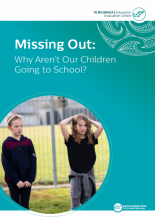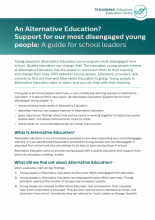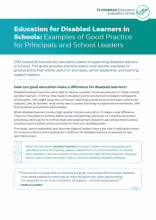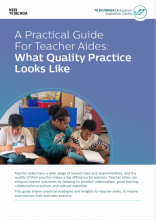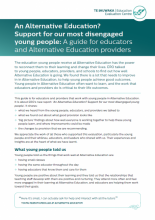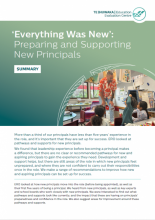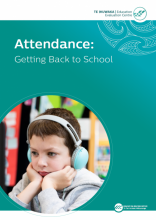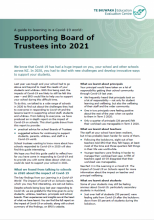An Alternative Education? Support for our most disengaged young people
Each year, Alternative Education provides education to over 2,000 young people who have been disengaged from education and who have high and complex needs. The Education Review Office (ERO), in partnership with the Social Wellbeing Agency (SWA), looked at how well the education system is supporting young people in Alternative Education. This study describes what we found and what is needed to significantly improve education for these young people.

